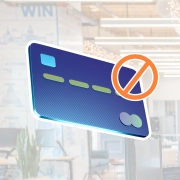Redundancy – not something most of us like to contemplate. Yet it is a reality for many of us in our working life. So rather than redundancy being seen as something negative, let’s flip it around – your redundancy could be the best thing that has ever happened to you.
It’s not you, it’s them. Over the years I’ve dealt with many people who have been made redundant and so I know it can be a huge confidence sapper. But I want to tell you, if you are currently facing redundancy that you being made redundant is almost never about you – your performance, skills, or work ethic. You’ve been made redundant because the industry has changed, or the company you work for has changed. In some cases there is simply a natural pyramid structure with lots of workers needed at the customer facing coal face, but far less managers and senior people as you move up the pyramid, such that workers need to be shed over time to accommodate the new blood coming through.
Being made redundant can be distressing – how will you keep a roof over your head and food on the table? Where will you find a new job? And there is also the loss of regular contact with your work colleagues. But there are positives too. Give some thought to the opportunities your redundancy presents. In a career sense, perhaps you can try something different. Maybe you could start your own business. Perhaps the payout you receive puts you in a stronger financial position so you can have more flexibility in your working life. Does it continue to be essential that you work 5 days per week?
Very often choices present themselves at moments of transition. In this case, your transition is leaving the comfort of a work place you’ve been at for many years, maybe even decades, and moving onto the next chapter in your life. Be completely assured – you can make this transition a successful one, and we’re here to help you do just that.
Before jumping down the first path that presents itself, let’s take a moment to consider the range of options you have available.
I’ve come up with 8 – let me know if you can think of more:
- Apply for a new job in the same field as you are currently working in.
- Apply for a new job in a completely different industry, but which still draws on some of the skills you have built up in your old job.
- Retrain to do something completely different.
- Start a business to become self-employed.
- Buy an existing business.
- Freelance.
- Work part time and pursue other passions
- Retire
Applying for a new job in the same industry that you were in probably doesn’t require a lot of planning. If you worked in a bank for instance, there is every chance that you will find work at another bank.
For many, this is not an option due to industries winding down, or they’ve simply had enough of working in that sector.
I’ve worked with a client who was on the production line at Holden, and is now working in the food manufacturing industry. He’s in a completely different industry, but it still utilises many of his skill in production line automation. Someone else I know worked at Kodak. When made redundant from that dying industry, he found work at the company that prints our bank notes – different industry but still using his skills.
Take a step back – what other industries use the skills you have? This redundancy could be great opportunity to move from an industry in decline into one on a growth path.
Retraining can present another great opportunity. Often we finish our formal education and then fall into a job – just go with the flow a bit. Before we know it we’ve got a mortgage and perhaps a family, and the thought of changing stream now is just unfathomable. But a redundancy might provide the perfect opportunity to make that change given you will receive some sort of payout to reflect years of service. With some good planning around managing your cash flows, this redundancy might give you the opportunity to finally pursue the thing you were born to do.
What about starting a business? In episode 1 we looked at getting yourself into a financial position to start your own business. We made this our first episode because this is an ambition for a lot of the people we work with. Making it a reality is tough though because most businesses make little money in the first year. But your redundancy package may be just the thing you need to make that transition a reality. If you haven’t listened to or read episode 1, be sure to check it out
Sometimes with redundancies, you get some lead time. The automotive industry for instance, where we’ve seen a lot of redundancies here in Victoria, put their workers on notice over a year ahead. Whilst this doesn’t make for the most positive of work environments, it does provide you with the opportunity to start planning your next step in life. I had a client who started a test and tag business in his local area that he was just doing on weekends. He did the training, got some business cards printed, and went around to some local businesses and asked if they needed his solution. He picked up half a dozen customers, which as a side job was enough. But it meant that when he was made redundant almost 12 months later, he had something to develop. He knew what services customers were willing to pay for, what his pricing needed to be to make it attractive to customers but also worthwhile to him, and he had ideas around how he could best grow the business – in this case having customers geographically close together was essential to operate efficiently and profitably.
Another option I’ve seen some people pursue is to buy a business. For a couple of years, in addition to being a licensed Financial Planner, I was also a licensed Business Broker. My thinking was that for many of our business owner financial planning clients, selling their business was an important aspect of their retirement plan. So I started researching how that process unfolded and ended up deciding to give it a go myself. I handled several sales, which was really valuable experience, however I decided to cease doing the business broking as my financial planning practice grew and I felt my time was better spent there.
So I’ve got some good learnings to share with you on buying a business, and I plan to write several future posts on that topic. For now though, I suggest just putting the idea of buying a business on your radar as an option. I find it’s an option often overlooked. Sure you can start a business from scratch, but that is no easy road. If you can find a business operating in the area of your interest, perhaps you can buy it, run it as is for the first 6 or 12 months to understand why things are done the way they are, and then change things to make it your own. Offer new services to the customer base, or go out an attack a new customer segment that the previous owner had overlooked. At least you will start day one with some cash flow and some customers to talk to. Google “businesses for sale” – there are several web sites that advertise businesses that are on the market, just like real estate sites.
Freelancing is another really interesting option, with the internet just opening this area up massively. Upwork, Airtasker, Uber, Fivrr, AirBnB. Just so many ways you can turn skills that you have into dollars.
No boss. Work when it suits you, and work as much or as little as you like.
Perhaps linked to this, after your redundancy, do you still need to work 5 days per week? Maybe part time work, or freelancing, will provide enough income to meet your needs, and in the time now freed up, you can pursue other interests, help family members, or do community work. Uber drivers often have interesting stories in this regard. I met one guy who did security at big sporting and music events, and Uber at other times. What worked especially well was turning on his Uber app when it was time to go home from a big event. Usually there’d be plenty of people looking for a ride, so he’d get paid to drive home.
I met another lady doing Uber driving who worked in the first half of the day, when her husband was home, and then around the middle of the day, she knocked off, he headed off to his job, and between the two of them, the kids were looked after.
The point is, work doesn’t have to be one employer, with you starting around 9am and finishing around 5pm. There are so many more options now for how you structure your working life, and this redundancy might just be the ticket that enables you to take advantage of these options.
The final option that I came up with earlier was retirement. Perhaps the redundancy provides you with the chance you were looking for to retire early. I can recall helping one client who had young grandchildren and really wanted to help her daughter care for them. A redundancy package was the best thing that could have happened for her as we were able to set her up to not need to return to the paid work force.
Important Information:
This information is of a general nature only and has been prepared without taking into account your particular financial needs, circumstances and objectives. While every effort has been made to ensure the accuracy of the information, it is not guaranteed. You should obtain professional advice before acting on the information contained in this publication.
This article was written by Paul Benson.
Paul Benson can be found on the podcast Financial Autonomy, and is a regular contributor to Fairfax.











